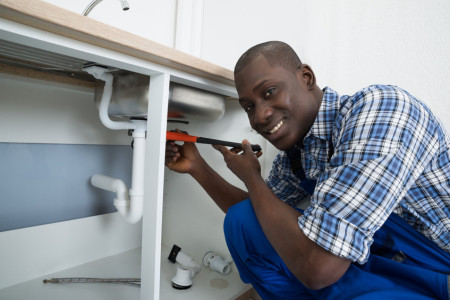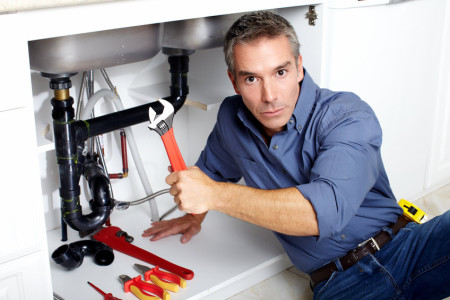Fast Solutions for Plumbing Emergencies: What to Do Until A Plumber Arrives
Fast Solutions for Plumbing Emergencies: What to Do Until A Plumber Arrives
Blog Article
Just how do you really feel about Plumbing Emergencies: Tips on What To Do Before?

Plumbing emergencies can strike at any moment, causing tension and prospective damages to your home. Whether it's a ruptured pipeline, a clogged up drainpipe, or a leaky faucet, knowing exactly how to manage the circumstance up until a specialist plumbing professional gets here can conserve you from more complications. This article gives essential emergency plumbing tips to aid you alleviate damage and regain control throughout a plumbing crisis.
Turn Off the Water
The initial step in any pipes emergency situation is to shut down the water system. For localized issues, such as a dripping faucet or toilet, switch off the shutoff near the fixture. When it comes to a significant leak or ruptured pipe, locate your home's major water shut-off valve and turn it off quickly. Understanding the area of these shutoffs ahead of time can save valuable time throughout an emergency.
Address Tiny Leaks with Temporary Repairs
Small leakages can rapidly come to be considerable problems if left untreated. Make use of these momentary fixes up until professional assistance arrives:
While these repairs aren't long-term, they can help lessen water loss and damage.
Unclog Drains Pipes Safely
A clogged up drain can be a frustrating and unpleasant problem. Right here's how to tackle it:
If these methods do not work, avoid utilizing excessive pressure, as it may get worse the blockage.
Take Care Of Overflowing Toilets
An overflowing commode can cause prompt mayhem. Below's what you ought to do:
Shut Off Your Water Heater
In particular emergencies, such as a burst pipeline, it's wise to shut off your water heater. This protects against overheating or damage to the device when water quits flowing. Shut off the power supply to the hot water heater (electrical or gas) and let it cool off to stay clear of potential risks.
Briefly Quit a Burst Pipe
A burst pipeline can bring about significant water damage in mins. To minimize the problem:
Call a specialist plumber immediately to deal with the problem permanently.
Deal With Frozen Water Lines Thoroughly
In chillier environments, icy pipelines are a typical emergency situation. If you presume an icy pipeline:
Stop Additional Damage
Taking quick action to minimize damages can save you time and money in the long run. Here's how:
. Have an Emergency Situation Pipes Set
Prepare a basic pipes emergency kit to take care of small concerns properly. Your set needs to include:
Having these tools accessible can make a considerable distinction in your capability to take care of emergencies.
Know When to Call a Specialist.
While quick fixes can help briefly, particular plumbing concerns require instant professional interest. Call a plumber if:.
Without delay contacting an expert makes sure the concern is dealt with properly and protects against further issues.
Final thought.
Pipes emergency situations can be overwhelming, however with the best expertise and tools, you can handle the scenario effectively up until aid arrives. By switching off the water supply, attending to little leakages, and using short-term solutions, you can minimize damage and maintain your home safe. Bear in mind, these suggestions are momentary remedies; always seek advice from a qualified plumber to deal with the origin of the trouble. Preparation and quick thinking are your ideal allies in any kind of plumbing emergency.
8 Helpful Tips for Managing Plumbing Emergencies at Home
If your plumbing system hasn’t failed once, wait for it because almost everyone has a story to tell. Sometimes, it could be simple emergencies such as a leaking pipe, a blocked cistern, or even a big burst pipe. In situations like this, you need to have some handy tips to save you some money and from possible damages.
Take care of minor issues early.
Sometimes, you could have avoided an emergency by taking proactive measures while it was still early. Some major plumbing emergencies can be a result of an ignored minor issue. We recommend that you have items like plumbing tapes and other related items. A plumbing tape can allow you to manage minor leaks before the plumber arrives.
Cut off the water supply.
This tip is essential in almost any type of leakage problem. For problems like minor leakages in the toilet or kitchen, turn off the supply that takes water to the affected pipes. If the leakage is a major pipe, you must shut off the supply valve to the entire building. This will help you avoid flooding your home and neighbors if you share a flat.
Know your plumbing system
Folks typically move into a new apartment without understanding the water supply around the building. This can prove disastrous if a water emergency arises and the plumber is far away. The previous tip will prove useless if you don’t practice this one. More importantly, know where your water shut-off valve is located – you’ll need that knowledge to prevent potential home floods.
Have some common handy tools
There are lots of plumbing emergencies that you can handle without hiring a plumber. That’s why you must keep some tools available always. Some tools that you can use to fix simple plumbing emergencies easily include plumbing tapes, screwdrivers, thread seal tapes, plungers, pliers, tape measures, and rubber gloves.
Insulate your pipes from cold
You’ll save yourself from many plumbing expenses if you protect your water pipes from the cold. This is because of the harmful effects that cold weather can have on your pipes. During winter, your pipes can burst from being overly expected to freezing temperatures. So, make sure insulators are there to keep the pipes working correctly.
Avoid practices that will clog your toilet.
Many people indulge in practices that can damage the plumbing system of the entire building. One of these is when they use their toilet to dispose-off garbage. They flush all kinds of things, such as paper towels, bandages, hairs, female sanitary products, etc., down the toilet. This will block your toilet in the long run, incurring unnecessary expenditures. Dump such waste in the trash instead.
Check your dials regularly.
Sometimes, there could be leakages in your home without noticing them in time. So, constantly monitor your water meter dial. If the dial is reading when there is nobody using water, this is an indicator that there is leaking. Check for leaks immediately. Call a plumber as soon as possible if you can’t find any.
https://www.constructionplacements.com/8-helpful-tips-for-managing-plumbing-emergencies-at-home/

Do you really like reading up on What to Do While Waiting for an Emergency Plumber? Place feedback down the page. We would be glad to know your suggestions about this review. We hope to see you back again later on. So long as you liked our blog entry plz be sure to share it. Many thanks for your time invested reading it.
Call Today Report this page